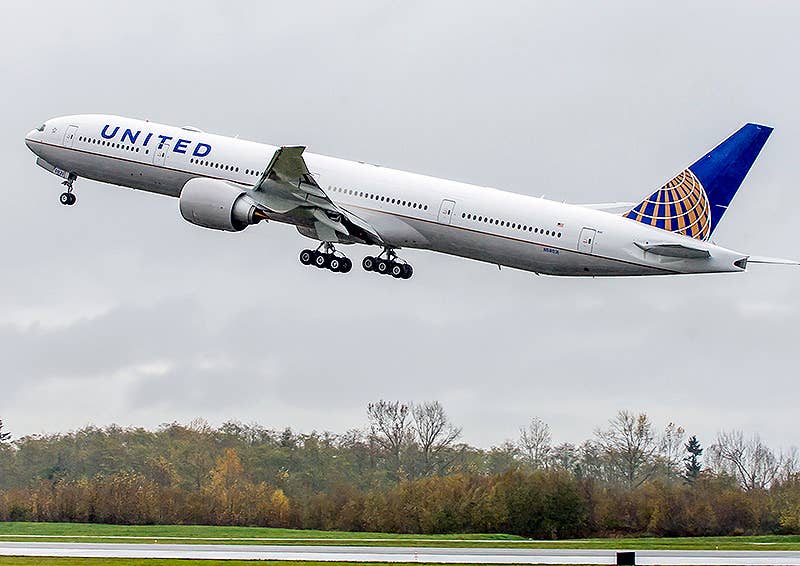
United Airlines have moved five Boeing 777-300s to its cargo division. United Airlines
United Airlines has restarted cargo-only flights just weeks after assigning all aircraft to normal passenger operations because the delta variant has dragged down travel volumes and growth expectations for the remainder of the year.
“I just released five [Boeing] 777-300s to our cargo division for later this year to put those aircraft back into all-cargo markets, based on the dynamics we’re seeing in the marketplace today, so these aircraft won’t be idle,” said chief commercial officer Andrew Nocella at Cowen’s transportation investor conference.
Why The Move Was Made
In September, United revised third-quarter revenue guidance after customer bookings and passenger yields decelerated below estimates due to the spike in COVID cases and said it adjusted capacity to align with the lower demand. Capacity for the quarter is expected to be 28 percent off the 2019 baseline compared to the earlier plan of minus 26 percent.
Meanwhile, many companies are delaying returning employees to the office and many industry conferences have been postponed, pushing back the potential return of lucrative corporate travel sidelined by the pandemic. United officials say they will operate fewer aircraft for the Thanksgiving and Christmas holidays than originally planned.
How We Got Here
United was the most aggressive domestic carrier in redeploying aircraft for dedicated cargo operations when the pandemic wiped out most intercontinental travel. The airline flew more than 13,400 passenger freighters between March 2020 and late July. The focus on cargo paid off with record cargo revenues, including an 86 percent increase in the first half of the year to $1.1 billion compared to 2019. United is on track to top $2 billion in cargo revenue this year.
United Airlines has a large fleet of widebody aircraft, many of which were repositioned to domestic routes this year to meet demand amid anemic international travel patterns. As passenger traffic picked up, management decided to return all aircraft to passenger service, with freight sharing space with luggage in the lower hold.
Nocella said the cargo division hit “a home run” with its ability to manage the influx of business and satisfy customers’ delivery needs. Corporate officers have said the cargo team will retain a larger enterprise role by having greater influence on route selection in the passenger network, which comprises the lion’s share of business.
“What we’re trying to do is create a level of stickiness with the revenue trends we’ve seen during the pandemic for a post-pandemic cargo environment,” Nocella said. “We’re working to figure out how we keep as much of that revenue on board United Airlines as we possibly can as we come out of the pandemic.”
A contributing factor behind the disbanding of cargo-only operations is the grounding of 52 777-200s with Pratt & Whitney 4000-series engines after one of its airplanes suffered an engine failure during flight. Those widebody aircraft represent about 10 percent of the airline’s pre-pandemic seat capacity.
Nocella said United has conducted extensive analysis in conjunction with the engine maker, Boeing (NYSE: BA) and the FAA and is in the process of returning them to service late this year or early 2022. The airplanes still have to undergo heavy maintenance checks.
“Given the ups and downs in demand, there are months during this crisis where we would love to have those aircraft. And there are months, especially right now, where we don’t necessarily miss those aircraft. They do otherwise fly for cargo, but don’t really miss those 52 777s” for passenger business, Nocella said at the Cowen event.

Subscribe to Our Newsletter
Get the latest FLYING stories delivered directly to your inbox






